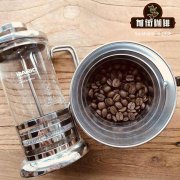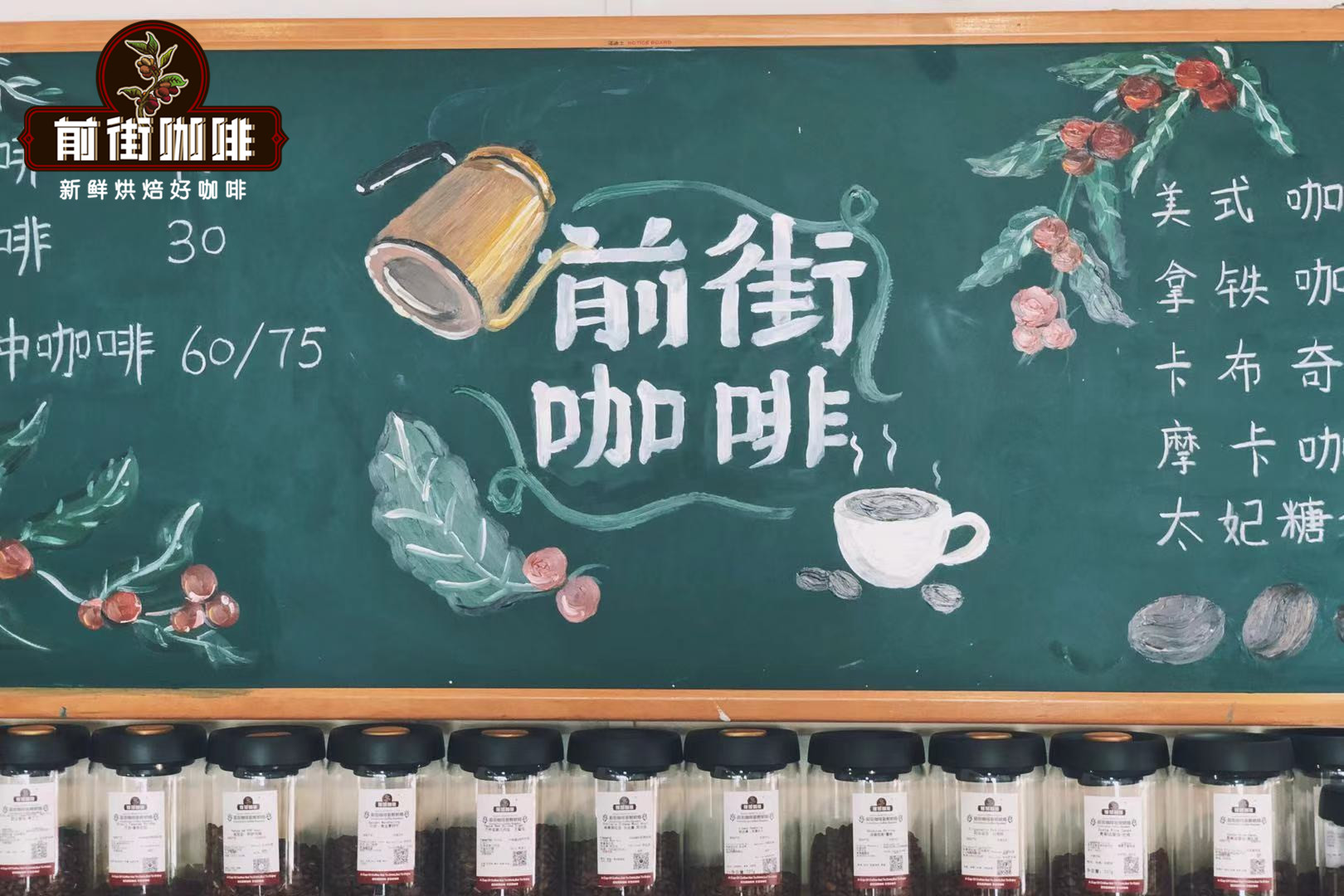Is Kenyan aa coffee expensive? Introduction to coffee processing and distribution in Kenya

Professional coffee knowledge exchange more coffee bean information please follow the coffee workshop (Wechat official account cafe_style)
Kenyan coffee beans have many followers in the boutique coffee industry, and Kenyan AA coffee beans are even more popular.
Kenyan coffee beans, known as the "Cup of connoisseurs" (Connoisseurs'Cup), are famous in the coffee industry for their rich aroma, bright and vibrant acidity, full and elegant mellowness and red wine flavor. Caffeine in different producing areas has its own subtle flavor due to the difference of microclimate.
Kenyan coffee bean varieties
Bourbon Bourbon was first brought to Kenya for planting. In the 1950s, the then agricultural research institution ScottLaboratory selected two excellent hybrids, SL-28 and SL-34, through unremitting efforts, subverting the long-standing prejudice of artificial breeding without excellent natural varieties. SL-28 and SL-34 help Kenyan coffee to form its own unique flavor characteristics and establish a perfect reputation in the coffee industry.
According to botanists in SL laboratory, SL28 and SL34 are genetic variants. Among them, SL28 has a mixed pedigree of French missionaries, mocha and Yemeni Tibica. The goal of cultivating SL28 was to mass produce coffee beans with high quality and resistance to diseases and insect pests.
Although the yield of SL28 was not as high as expected, the copper leaf color and broad bean-shaped beans have great sweetness, balance and complex flavor, as well as remarkable citrus and plum characteristics. SL34 is similar to SL28 in flavor, with a heavier, fuller and cleaner finish than SL28, except for the complex acidity and great sweetness of the finish. SL34 has French missionaries, bourbon, and more Tibica ancestry. Dou looks similar to SL28, but is more adaptable to sudden heavy rain. It is these two important varieties that lead us to the unique style of Kenyan coffee beans: strong acidity, rich taste and beautiful balance.
Coffee Bean growing area in Kenya
The coffee bean producing areas in Kenya are mainly concentrated in the plateau areas represented by Mount Mt.Kenya. Tropical climate, acid red volcanic soil provides a natural and suitable growth environment for coffee. The seven major producing areas are the most famous, including Nieri, Sika, Chiambu, Geliniya, Ruiru, Mulanga and the western side of Mount Kenya, with the main producing areas such as Nyeri and Ruiru in the middle.
Kenya coffee bean processing
Large farms usually have independent treatment facilities. A large number of small farmers usually pick ripe coffee fruits by hand. Coffee picking is a labor-intensive job that requires the whole family to deploy and even hire workers during the harvest season. The fresh fruit of the picked coffee needs to be delivered in time to the cooperative-owned coffee processing plant for pulping, which may be carried by ox carts, pick-up trucks or trucks. After peeling, Parchmentcoffee is briefly kept in the cooperative's processing plant and sent to a privately owned factory for shelling treatment.
Kenyan coffee bean grade
Kenya is a well-known producer based on the size of coffee beans. It is usually divided into nine grades, according to the bean type, there are PB (round beans, accounting for about 10% of the total output), in addition, there are E (elephant beans), AA, AB, C, T, TT, MH, ML according to size. The best coffee grade is bean-shaped berry coffee PB, followed by AA++, AA+, AA, AB and so on.
Usually, Kenyan coffee beans are classified as follows:
1) Common categories:
Hand-picked coffee fruit, picked by hand, picked out immature fruit (unripe), overripe fruit (overripe) and other defects, peeled, after about 36 hours of fermentation, placed on a metal grid for sun drying, in the processing plant to remove the seed shell (parchment), become a blue-green appearance of attractive Kenyan raw beans.
These beautiful raw beans are graded according to particle size (size), shape (shape) and weight (weight):
E:kenyaE, elephant beans, elephantbean,18 and above (including round beans)
AA:KenyaAA,17-18 mesh
AB:KenyaAB,15-16, which is a mixture of An and B.
Light beans selected by TT:AA and AB by airflow separator
Above PB:KenyaPB,15, round bean
CRV 12-14 mesh and PB light bean screened by air flow separator
Under 12 eyes, there are more defective beans, chopped beans and light beans.
HE: beyond the above level becomes HE (HulledEars)
2) the raw beans without official standard grading are UG (ungrade).
E,AA,AB,PB → UG1
C,TT,T,HE → UG2
(note: class An over 17 mesh (6.8mm), class B over 16 mesh (6.3mm) 18 mesh = 18cm 64 inches, 1 inch = 25.4mm)
Classification diagram
Taste
Kenyan coffee beans have an irresistible aroma, and the best Kenyan coffee has strong acidity, reminiscent of ripe blackcurrants, oranges or cherries. At the same time, Kenyan coffee has strong berry aromas, such as blueberries, often with rose fruit, passion fruit and floral aromas, with a BlackBerry and grapefruit flavor and is a favorite of many coffee gluttons.
This coffee has an excellent medium purity, crisp and refreshing taste. It has a fresh flavor and is most suitable for drinking iced coffee in summer. When tasting this coffee, if it is paired with sour fruits such as grapefruit, it will certainly give you the best coffee experience.
Kenyan coffee bean brand recommendation
The Kenyan coffee beans baked on Qianjie Coffee are fully guaranteed in terms of brand and quality. More importantly, the performance-to-price ratio is extremely high, a box of 227 grams, the price is only 95 yuan. According to the calculation of 15 grams of powder per cup of coffee, a bag of coffee can make 15 cups of coffee, which costs only about 6 yuan per cup, which is recommended by conscience compared to the price sold in cafes for dozens of yuan a cup.
Important Notice :
前街咖啡 FrontStreet Coffee has moved to new addredd:
FrontStreet Coffee Address: 315,Donghua East Road,GuangZhou
Tel:020 38364473
- Prev

How do you make Kenyan coffee? what kind of Kenyan coffee is Kenyan coffee? how much is Kenyan coffee?
Professional coffee knowledge exchange more coffee bean information please follow the coffee workshop (Wechat official account cafe_style) [Kenyan coffee bean Haniyeh French missionary bourbon sunburn] country: Kenya: Thika) processing plant: Haniyeh (ChaniaEstates) altitude: 1525 m breed: French missionary bourbon seed treatment: Japan
- Next

African Kenyan Coffee treatment K72 double washed Kenyan Coffee beans Taste Story
For more information on coffee beans, please follow the coffee workshop (Wechat official account cafe_style) Kenya coffee beans: most of them grow at an altitude of 1500Murray 2100m and are harvested twice a year. Its main feature is a distinct fruit aroma, the common fruit aroma is citrus. Kenyan coffee beans have multi-layered taste and acidity of fruit juice, perfect grapefruit
Related
- Detailed explanation of Jadeite planting Land in Panamanian Jadeite Manor introduction to the grading system of Jadeite competitive bidding, Red bid, Green bid and Rose Summer
- Story of Coffee planting in Brenka region of Costa Rica Stonehenge Manor anaerobic heavy honey treatment of flavor mouth
- What's on the barrel of Blue Mountain Coffee beans?
- Can American coffee also pull flowers? How to use hot American style to pull out a good-looking pattern?
- Can you make a cold extract with coffee beans? What is the right proportion for cold-extracted coffee formula?
- Indonesian PWN Gold Mandrine Coffee Origin Features Flavor How to Chong? Mandolin coffee is American.
- A brief introduction to the flavor characteristics of Brazilian yellow bourbon coffee beans
- What is the effect of different water quality on the flavor of cold-extracted coffee? What kind of water is best for brewing coffee?
- Why do you think of Rose Summer whenever you mention Panamanian coffee?
- Introduction to the characteristics of authentic blue mountain coffee bean producing areas? What is the CIB Coffee Authority in Jamaica?

